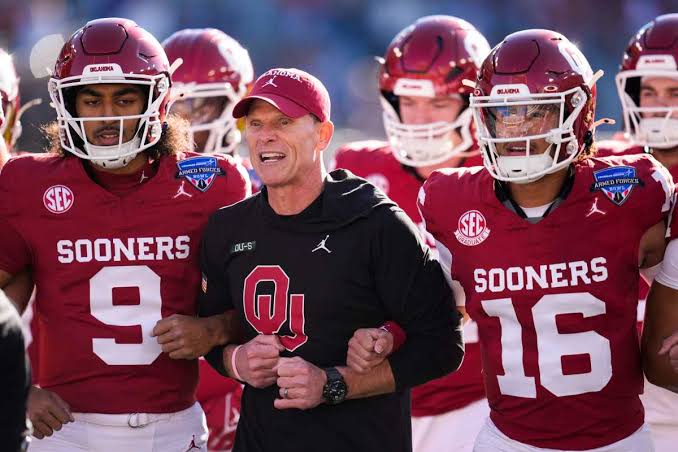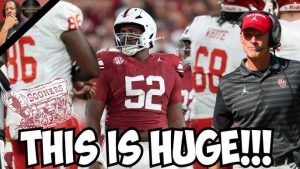
The Heisman Trophy, awarded annually to the best player in college football, is a prestigious honor, but like any award, it’s not immune to controversy. Over the years, some players have received the trophy despite having less-than-stellar seasons, or in some cases, benefiting from circumstances that weren’t entirely reflective of their individual achievements.

Here are ten of the least deserving Heisman winners, based on their performance during the year they won, the competition they faced, or the broader context of their careers.
1. Jason White (2003)
Jason White won the Heisman in 2003 despite having a fairly pedestrian season for a quarterback. He threw for only 3,846 yards with 40 touchdowns but also had 10 interceptions.
White’s Oklahoma team was dominant, but much of the credit for the team’s success went to its defense. White’s victory is often criticized because many felt that the Heisman should have gone to someone with a more consistently excellent individual season, such as Larry Fitzgerald or Chris Perry.
2. Gino Toretta (1992)
Gino Toretta’s 1992 Heisman victory was one of the most puzzling in history. While he led Miami to a national title, his personal statistics were not particularly impressive. Toretta threw for just 2,535 yards and 15 touchdowns.
Meanwhile, players like Marshall Faulk (San Diego State) and the more statistically dominant Ricky Watters (Notre Dame) had far better seasons, making his win seem more like a product of Miami’s prominence rather than Toretta’s individual excellence.
3. Charlie Ward (1993)
Charlie Ward won the Heisman in 1993, leading Florida State to a national championship. While Ward was an excellent player, his performance as a quarterback that season wasn’t the best in the country.
He threw for 3,032 yards and 27 touchdowns, but players like Keyshawn Johnson (USC) and Drew Bledsoe (Washington State) had more impressive individual stats. Ward’s Heisman win is often attributed more to his team’s success than his personal brilliance.
4. Danny Wuerffel (1996)
Danny Wuerffel’s Heisman win in 1996 came after leading Florida to a national title. However, his stats were somewhat underwhelming. Wuerffel threw for 3,625 yards and 39 touchdowns, but in comparison to other quarterbacks in his era, his numbers weren’t eye-popping. Wuerffel’s win is often questioned because many believe Peyton Manning (Tennessee) deserved the award that season, as he had a better overall performance and was the more complete player.

5. Chris Weinke (2000)
Chris Weinke won the Heisman in 2000 at the age of 28, after returning to college football following a stint in minor league baseball.
His season stats (4,167 yards and 33 touchdowns) were solid, but his age made the award seem questionable. Some felt that Weinke’s Heisman win was due to the fact that he was playing in a prominent program (Florida State) with a strong offensive system, rather than him being the best player in the nation.
6. Eric Crouch (2001)
Eric Crouch won the Heisman in 2001 as the quarterback for Nebraska. While Crouch was certainly a dynamic dual-threat quarterback, his passing numbers were not particularly impressive—only 1,510 yards and 7 touchdowns.
His rushing stats (1,115 yards) were good, but not Heisman-worthy when compared to other players, such as LaDainian Tomlinson or Rex Grossman, who had more prolific seasons. The award seemed more a recognition of Nebraska’s team success than Crouch’s individual performance.
7. Ron Dayne (1999)
Ron Dayne won the Heisman in 1999 after running for a record-breaking 2,034 yards. However, he was part of a dominant Wisconsin offense, and his performance wasn’t as extraordinary as it appeared on the surface.
Dayne’s success came mostly against weaker teams, and his Heisman win is often considered a result of his high profile rather than truly transcendent play, especially when compared to other talented running backs like Michael Vick (Virginia Tech).
8. John David Crow (1957)
John David Crow’s Heisman win in 1957 came during a season when several other players had stronger individual performances. Crow had a solid but unspectacular season, rushing for just 1,046 yards and 10 touchdowns. His win was more a reflection of the strength of his Texas A&M team than his individual excellence, and many felt that other players in college football that year were more deserving.
9. Troy Smith (2006)
Troy Smith won the Heisman in 2006 after a solid but unspectacular season with Ohio State. He threw for 2,542 yards and 30 touchdowns, but his performance against Michigan, in which he was outperformed by his opponent, Chad Henne, raised doubts. Smith’s Heisman win felt like a result of his team’s overall dominance in the Big Ten rather than his individual brilliance.
10. Mark Ingram (2009)
Mark Ingram won the Heisman in 2009 after rushing for 1,658 yards and 17 touchdowns. While Ingram was a talented back, his season wasn’t as standout as other players like Toby Gerhart (Stanford), who rushed for 1,871 yards and 26 touchdowns, or Ndamukong Suh (Nebraska), who had a historically dominant season as a defensive lineman. Ingram’s Heisman win is often seen as a result of Alabama’s successful season rather than a truly exceptional individual performance.
These Heisman winners are often viewed as deserving of recognition, but their wins are regarded as questionable when compared to the players who had better individual seasons. While many factors—team success, historical context, and media narratives—contribute to a Heisman win, these players are sometimes seen as having been more the beneficiary of those factors than of their own personal excellence.





